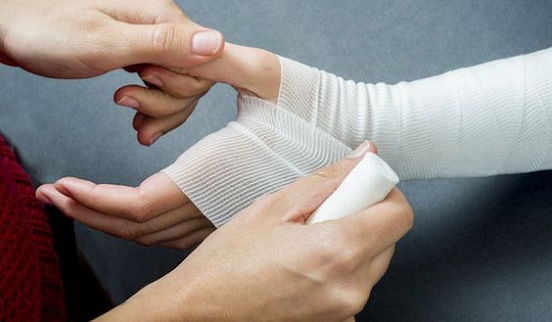Chronic wounds pose a significant healthcare challenge, requiring comprehensive treatment protocols to facilitate healing and prevent complications. In Dubai, a city known for its advanced medical facilities and commitment to healthcare excellence, healthcare providers adhere to effective treatment protocols tailored to the unique needs of patients with chronic wounds. In this guide, we explore the key components of Chronic Wounds treatment in Dubai protocols , highlighting the city's dedication to delivering optimal care and improving patient outcomes.
Comprehensive Wound Assessment:
The first step in chronic wound treatment in Dubai is a thorough assessment to evaluate the wound's characteristics, underlying causes, and contributing factors. Healthcare providers conduct a comprehensive examination, including assessment of wound size, depth, location, tissue viability, infection status, and presence of underlying vascular or systemic conditions. This holistic approach ensures an accurate diagnosis and guides the development of individualized treatment plans.
Wound Debridement:
Debridement is a fundamental component of chronic wound management in Dubai, aimed at removing non-viable tissue, debris, and bacterial biofilm to promote wound healing. Healthcare providers utilize various debridement techniques, including sharp debridement, enzymatic debridement, mechanical debridement, and autolytic debridement, depending on the wound's characteristics and patient's condition. Regular debridement sessions are essential to maintain a clean wound bed and optimize healing potential.
Advanced Wound Dressings:
Dubai's healthcare facilities offer a wide range of advanced wound dressings tailored to the specific needs of chronic wounds. These dressings may include hydrocolloids, foams, hydrogels, alginates, and antimicrobial dressings, among others. Advanced wound dressings create an optimal healing environment, absorb excess exudate, reduce infection risk, and promote tissue regeneration. Healthcare providers select dressings based on wound characteristics, moisture levels, and patient preferences to optimize treatment outcomes.
Infection Control Measures:
Preventing and managing wound infections is a critical aspect of chronic wound treatment in Dubai. Healthcare providers adhere to strict infection control protocols, including wound cleansing with antiseptic solutions, topical antimicrobial therapy, and systemic antibiotics when indicated. Regular monitoring for signs of infection, such as increased pain, redness, warmth, or purulent drainage, allows for prompt intervention and prevention of complications.
Vascular Assessment and Optimization:
Many chronic wounds in Dubai are associated with underlying vascular insufficiency, such as peripheral arterial disease or venous insufficiency. Healthcare providers conduct thorough vascular assessments to identify perfusion deficits and circulation issues contributing to wound chronicity. Interventions may include compression therapy, revascularization procedures, and lifestyle modifications to optimize blood flow and promote healing.
Patient Education and Self-care:
Empowering patients to participate actively in their wound care is essential for successful treatment outcomes in Dubai. Healthcare providers educate patients about proper wound care techniques, including dressing changes, wound cleansing, and monitoring for signs of infection. Additionally, patients receive guidance on lifestyle modifications, such as smoking cessation, maintaining a healthy diet, and managing chronic conditions, to support the healing process and prevent recurrence of chronic wounds.
Multidisciplinary Collaboration:
Collaboration among healthcare professionals from various disciplines is integral to chronic wound treatment in Dubai. Multidisciplinary wound care teams, including wound care nurses, dermatologists, vascular surgeons, endocrinologists, and podiatrists, work together to develop comprehensive treatment plans and coordinate care for patients with complex wound issues. This interdisciplinary approach ensures holistic patient care and facilitates optimal treatment outcomes.
Conclusion:
In conclusion, effective chronic wound in Dubai encompass a multidisciplinary approach, advanced wound care technologies, and patient-centered care principles. By adhering to comprehensive wound assessment, debridement, advanced wound dressings, infection control measures, vascular assessment, patient education, and multidisciplinary collaboration, healthcare providers in Dubai strive to optimize healing outcomes and improve the quality of life for patients with chronic wounds. Through ongoing research, education, and innovation, Dubai remains committed to advancing chronic wound care and delivering excellence in healthcare services.




No comments:
Post a Comment